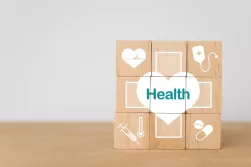Amidst COVID-19, the U.S. labor market, particularly in healthcare, faced substantial job vacancies (Fontinelle, 2022). The sweeping resignations of 2021 exacerbated these gaps, as competition among employers to attract workers created a cycle prompting people to seek better opportunities, as speculated by Furman (2021). An estimated 60% of healthcare support workers will leave their positions within the next five years (Loria, 2023).
Pharmacies nationwide grappled with a notable shortage of pharmacy technicians. ASHP's 2021 online surveys revealed turnover rates of 21 to 30% among hospital pharmacy technicians. Additionally, 10% of respondents reported losing up to 41% of these technicians. The surveys highlighted that over 97% of participants resorted to overtime pay and utilizing pharmacists to cover vacant technician shifts. In this piece, I will detail my initiative in revamping the pharmacy internship program to combat the technician shortage at my pharmacy, located near three esteemed pharmacy schools within a 50-mile radius.
The primary goal of the revamped program is to foster the development of pharmacy interns within the hospital pharmacy's operations. Interns primarily check unit dose medication refills in automatic dispensing cabinets while also receiving training in various pharmacy tasks such as sterile and non-sterile compounding, medication history reconciliation, crash cart drawer management, and controlled substance documentation FOR DIVERSION PREVENTION.
The pharmacy interns actively participate in the development of this internship program. Interns are responsible for compiling and updating the intern manual. They also develop a competency checklist for each intern task. A new intern is trained by those who have demonstrated competency in a given task. A new intern needs to demonstrate competency before independently performing the task.
An intern must complete the required USP 797 media-filled tests to be eligible to train in the IV room. IV-trained technicians are responsible for training interns in sterile compounding following the established sterile compounding policies. The IV room specialist technician or the IV room pharmacy coordinator is responsible for checking an intern's competency in making sterile products. The same training methodology is used for training interns in performing other tasks.
Encouragement is given to interns to undertake technical writing projects to hone their skills. Those inclined towards technology can learn about system integration, while those interested in hospital pharmacy management can engage in workflow and inventory enhancement projects. Two lead pharmacy interns oversee scheduling, training, and competency checks of other interns, as well as organize quarterly intern meetings, thereby refining their leadership skills.
A well-crafted pharmacy internship program not only addresses technician shortages but also equips pharmacy interns for future hospital pharmacy careers. Over the past three years, our pharmacy intern team has burgeoned from 6 to 18 members, at one point helping cover up to seven open technician positions. Not only do pharmacy interns help maintain a smooth pharmacy operation by filling in open shifts, but they also help reduce overtime pay and burnout among staff.



